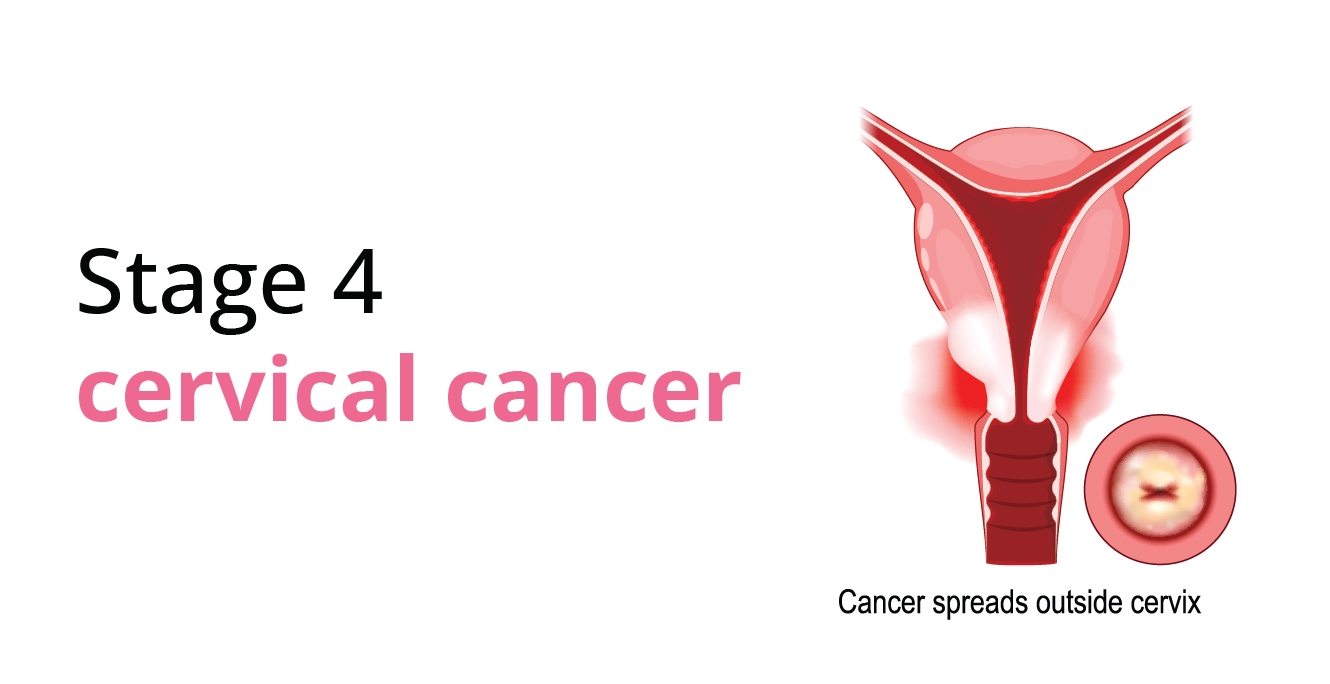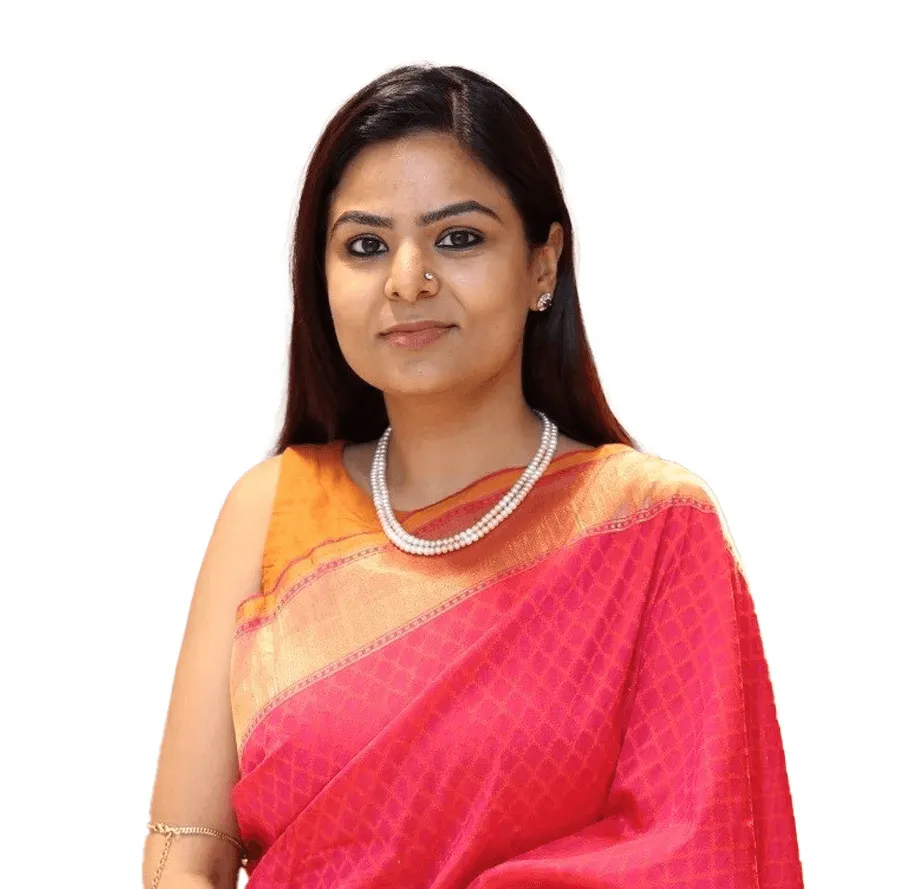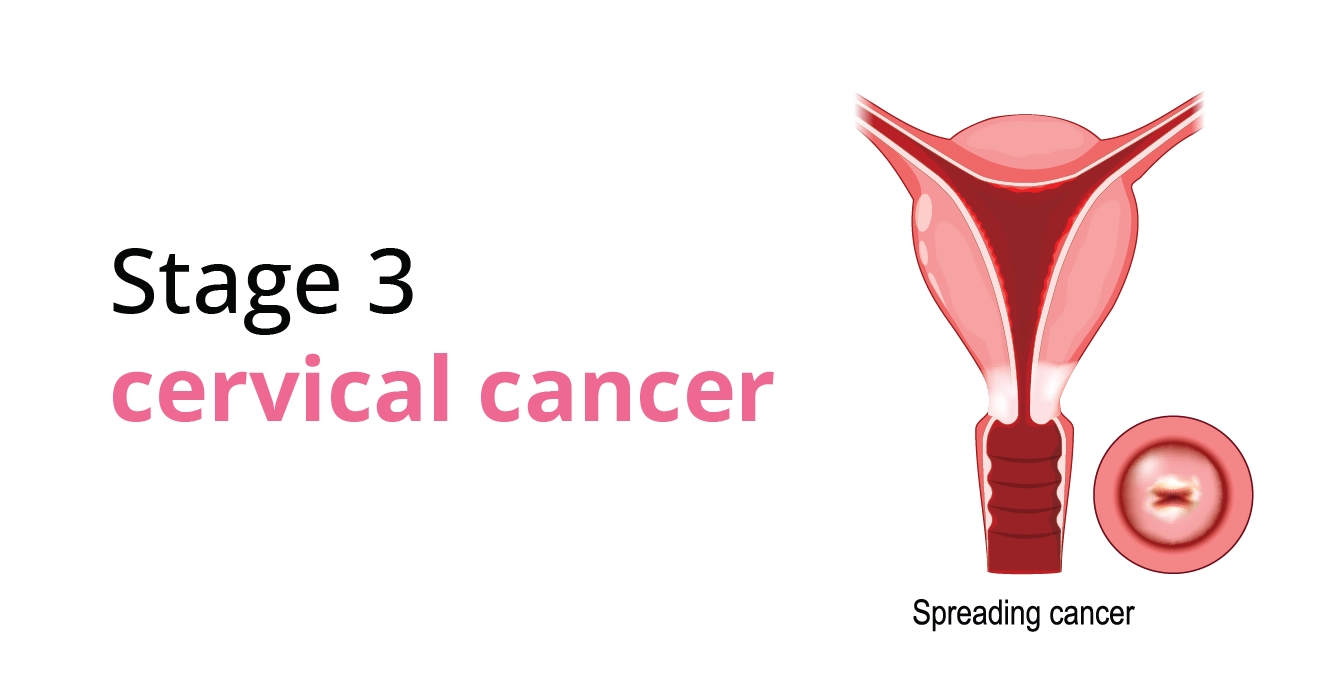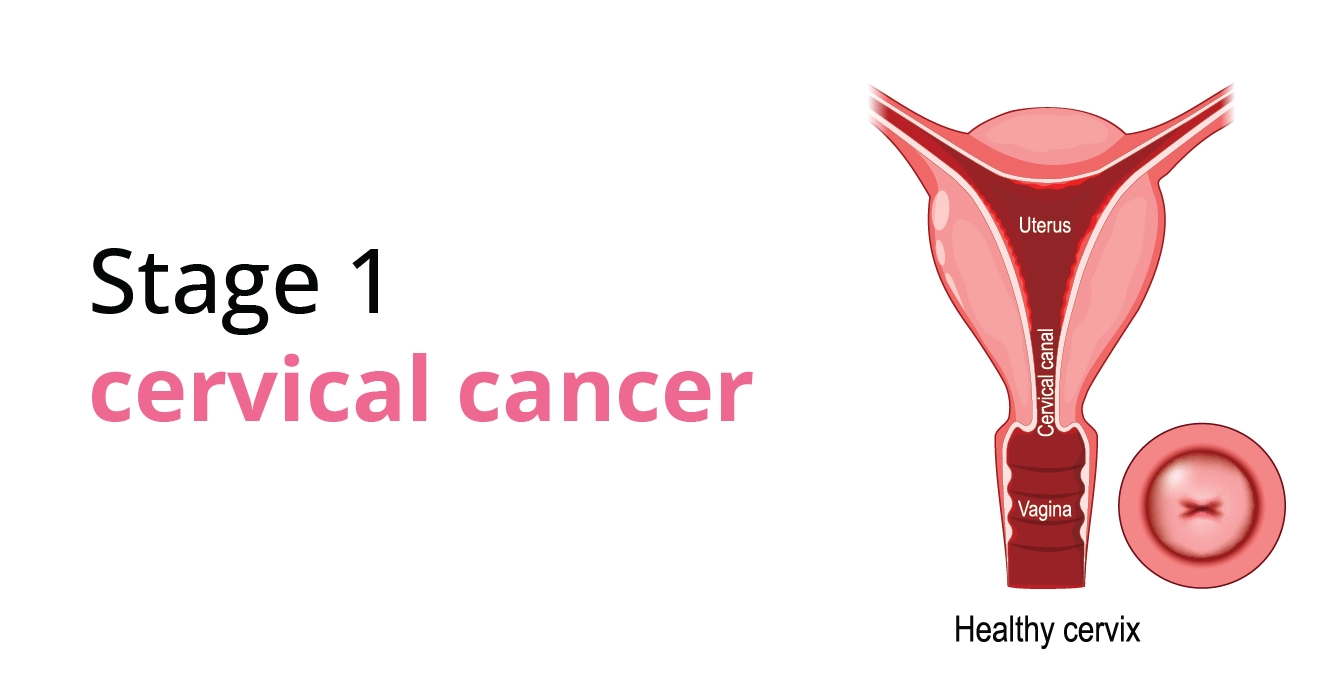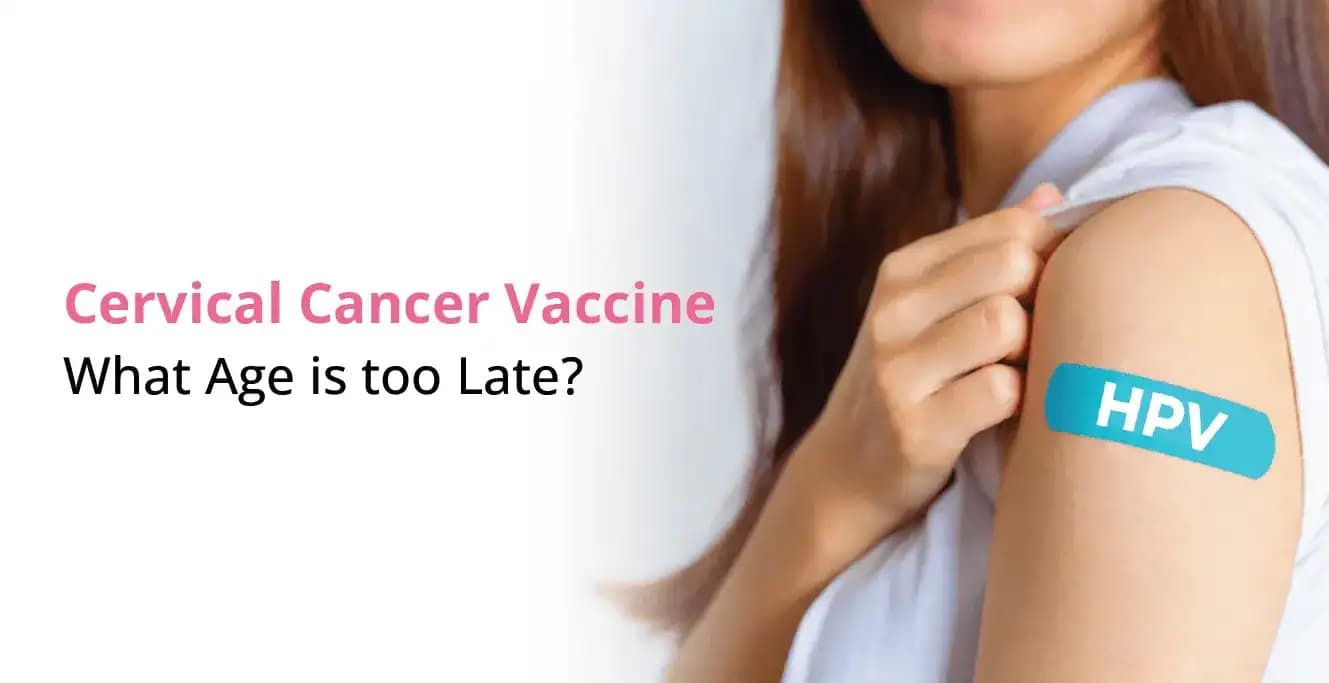
Cervical Cancer Vaccine: What Age is Too Late?

Table of Contents
- Key Takeaways
- What is Cervical Cancer, and What Causes It?
- Preventing Cervical Cancer
- Types of Cervical Cancer Vaccines: Understanding the Gardasil Vaccines
- When Should You Get the HPV Vaccine?
- Is It Ever Too Late for the HPV Vaccine?
- How Well Does the HPV Vaccine Work at Different Ages?
- Signs and Symptoms of Cervical Cancer
- How is Cervical Cancer Diagnosed?
Key Takeaways
-
The HPV vaccine is advised for people up to 45 years old but works best when given before sexual activity starts.
-
Getting vaccinated in your 20s, 30s, or 40s can still help, especially if you have had few or no sexual partners before.
-
The HPV vaccine prevents cervical, anal, head and neck, penile, vaginal, and vulvar cancers caused by certain HPV types.
-
Regular Pap and HPV tests are still needed after vaccination to find and treat cervical cancer early.
-
Talk to your doctor to decide if the HPV vaccine is right for you based on your age, sexual history, and health.
Getting vaccinated against cervical cancer is important. Cervical cancer is a significant health issue, and prevention is key. Many people wonder about the cervical cancer vaccine age limit. Understanding when to get vaccinated can help you make the right choice for your health. In India, the cervical cancer vaccine age limit is a concern for many parents and young adults. While the maximum age for the cervical cancer vaccine is usually 26, adults can still benefit. Let’s find out why it’s essential to get vaccinated.
What is Cervical Cancer, and What Causes It?
Cervical cancer starts in the cervix, the lower part of the uterus. It’s one of the most common cancers in women worldwide, including in India.
-
Cervical cancer is almost always caused by the Human Papillomavirus (HPV)
-
HPV types 16 and 18 are responsible for about 66% of all cervical cancer cases
-
HPV spreads through intimate skin contact
-
Most people get HPV at some point, but the immune system often clears it
-
If HPV stays, it can cause precancerous lesions and cancer
Did you know?
HPV is responsible for over 90% of cervical cancer cases, with a woman dying from cervical cancer every two minutes globally. Vaccination is a critical step in reducing these statistics.
Preventing Cervical Cancer
Cervical cancer can be prevented effectively through:
- Getting the HPV vaccine
- Having regular cervical screenings
- Practicing safe sex
Fun Fact!
While the cervical cancer vaccine is widely recommended for preteens, its benefits extend well beyond adolescence. For those who have not been vaccinated earlier, the World Health Organization (WHO) advises considering vaccination until the age of 45. This proactive approach can help minimise the risk of cervical cancer by targeting HPV strains responsible for most cases.
Types of Cervical Cancer Vaccines: Understanding the Gardasil Vaccines
Vaccination against HPV is a crucial preventive measure, and several vaccines are available, each with distinct characteristics and protective capabilities. The Gardasil vaccines are the most widely used because they vaccinate against a wide range of HPV types.
There are two different Gardasil vaccines:
Gardasil 4 (Quadrivalent Vaccine)
Approved in 2006, it protects against HPV types 6, 11, 16, and 18. Types 6 and 11 cause most anogenital warts, while types 16 and 18 cause about 66% of cervical cancers.
-
Protection offered:
-
Prevents about 90% of genital warts (caused by HPV types 6 and 11).
-
Protects against approximately 70% of cervical cancers (linked to HPV types 16 and 18).
-
Also provides protection against some cancers of the vulva, vagina, and anus.
-
-
Administration: Typically given in a series of three doses.
Gardasil 9 (9-Valent HPV Vaccine)
Approved in 2014, it protects against nine types of HPVs: 6, 11, 16, 18, 31, 33, 45, 52, and 58. This covers the same four types as Gardasil plus five additional cancer-causing types, which account for about 15% of cervical cancers.
-
Protection offered:
-
Provides broader protection than the original Gardasil by covering additional high-risk HPV types that account for up to 90% of cervical cancers.
-
-
Administration: Given in a series of two or three doses depending on age.
Here’s a quick look at the differences:
|
Vaccine |
HPV Types Covered |
Cancers Protected |
Additional Benefits |
|---|---|---|---|
|
Gardasil 4 |
6, 11, 16, 18 |
Cervical, anal, vaginal, vulvar |
Prevents genital warts |
|
Gardasil 9 |
6, 11, 16, 18, 31, 33, 45, 52, 58 |
Cervical, anal, vaginal, vulvar, penile, head and neck |
Prevents genital warts and protects against 5 more cancer-causing HPV types |
Did you know?
Many people wonder if getting the cervical cancer vaccine later in life is still worthwhile. The answer is a resounding yes! Both vaccines were initially approved for ages 9-26 but are now available up to age 45. Even if you’re older than the ideal age, receiving the vaccine up to age 45 can significantly reduce your risk of HPV infections and cervical cancer. It’s never too late to take proactive steps towards safeguarding your health.
When Should You Get the HPV Vaccine?
The Centers for Disease Control and Prevention (CDC) advise routine vaccination of preteens at ages 11 or 12. The vaccination series can start as early as age 9. For those who start between ages 9 and 14, a two-dose series is advised. Those starting at age 15 or older need a three-dose series.
There has been an 87% drop in cervical cancer cases among women who were immunised between ages 12 and 13 compared to those who were not vaccinated. Further, the HPV vaccine has led to big drops in precancerous lesions and genital warts among people aged 15-24 years.
Early vaccination gives the best protection before any potential exposure to HPV. The best immune response happens when the vaccine is given to preteens rather than older people. Vaccination before first sexual contact ensures lifelong protection.
Myth: If you have already been exposed to HPV, the vaccine is useless.
Fact: Even if you have been exposed to one type of HPV, the vaccine can still protect against other high-risk types.
Is It Ever Too Late for the HPV Vaccine?
The CDC guidelines suggest HPV vaccination for people up to the age of 45. It’s especially helpful if you weren’t vaccinated earlier or have only been exposed to some HPV strains.
-
Adults can still get different strains of HPV over time, especially if they have new or changing relationships. The vaccine can protect against these higher-risk strains.
-
The HPV vaccine protects against other cancers like anal, vaginal, vulvar, penile, and head and neck cancers, which can happen at any age.
Adults in this age range should talk to their doctor about the benefits of the vaccine.
Initially targeted at girls, the HPV vaccine is now recommended for both boys and girls aged 9 to 12. Vaccinating boys helps prevent the spread of HPV to girls and reduces the overall incidence of HPV-related cancers, including anal and throat cancers in men. Vaccinating individuals not only protects them but also contributes to community immunity, reducing the overall transmission of HPV within populations.
How Well Does the HPV Vaccine Work at Different Ages?
The HPV vaccine is highly effective at preventing cancer and other HPV-related diseases at all ages. However, the level of protection varies by age.
|
Age Group |
Vaccine Efficacy |
Dosing Schedule |
|---|---|---|
|
9-14 years |
High; protects against 90% of HPV cancers |
2 doses, 6-12 months apart |
|
15-26 years |
High; protects against 90% of HPV cancers |
3 doses: 0, 1-2, 6 months |
|
27-45 years |
88% effective against HPV infection, lesions, warts |
3 doses: 0, 1-2, 6 months |
Myth: The vaccine isn’t useful if you’re already sexually active.
Fact: The vaccine can still protect you against HPV types you haven’t been exposed to.
Signs and Symptoms of Cervical Cancer
Early cervical cancer may not cause symptoms. However, as it progresses, you may notice the following symptoms:
- Abnormal vaginal bleeding between periods, after sex, or after menopause
- Pelvic pain
- Unusual vaginal discharge
- Changes in menstrual cycles
Remember that symptoms may not show up until the disease has advanced.
How is Cervical Cancer Diagnosed?
Doctors use several tests to diagnose cervical cancer:
- Pap test (Pap smear): Screens for abnormal cervical cells and changes in the cervix
- HPV test: Checks for high-risk HPV types
- Colposcopy: Examines the cervix closely after cervical screening reveals changes in the cervix
- Biopsy: Takes cervical tissue samples for lab testing
The HPV vaccine is a safe and powerful tool to prevent cervical cancer and other HPV-related diseases. While it’s ideal to vaccinate at ages 11–12, getting the vaccine up to age 45 can still provide significant protection. Talk to your doctor about whether the HPV vaccine is right for you, regardless of your age or sexual history. It’s an important step in taking control of your health ~ Dr. Prachi Benara
Our Fertility Specialists
Related Blogs
To know more
Birla Fertility & IVF aims at transforming the future of fertility globally, through outstanding clinical outcomes, research, innovation and compassionate care.
Had an IVF Failure?
Talk to our fertility experts

 Our Centers
Our Centers









